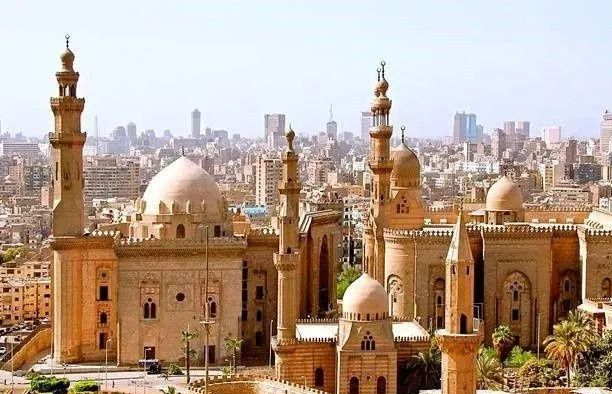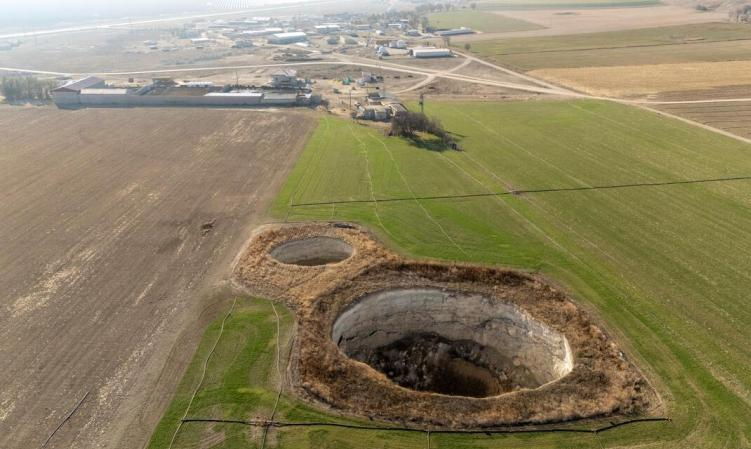
Recently, Egypt's domestic economic situation has attracted a lot of attention from the international community. A series of economic problems such as high debt and currency devaluation hit Egypt's economy hard. Last year alone, Egypt's debt rate was as high as 92.7%, and its foreign exchange reserves were seriously depleted. The Egyptian pound fell directly from the original one dollar to 30.85 Egyptian pounds to 1∶48.45, which depreciated by 40%, becoming the second largest debtor country in the world.
Egypt is a country with a large economic scale, and its total GDP ranks in the forefront of African economies, showing a strong economic strength. GDP per capita also exceeds the African average, reflecting the relatively high standard of living of the Egyptian people. In recent years, Egypt's inflation rate has been high, food inflation is as high as 48%, which has caused a lot of pressure on people's lives. In addition, Egypt's foreign exchange reserves are insufficient and its debt crisis is severe, which makes Egypt more vulnerable to external economic shocks. In addition, Egypt's relatively homogeneous industrial structure, which is over-dependent on agriculture and certain export products, also adds to the instability of its economy.
There are many reasons why Egypt is now the second largest debtor country in the world, and these factors are intertwined, which together lead to the rapid growth of the scale of Egyptian debt.
Egypt's economic development model relies excessively on external financing, especially foreign debt. In order to promote infrastructure construction, promote economic growth and improve people's livelihood, Egypt, as a developing country, often relies on external financing for its economic development, including the issuance of US dollar-denominated government bonds. When the dollar raises interest rates, the cost of Egypt's debt rises, adding to the fiscal burden. At the same time, in order to maintain the stability of the exchange rate, Egypt may need to consume a large amount of foreign exchange reserves to intervene in the foreign exchange market, which further reduces the amount of foreign exchange reserves, affecting its ability to pay international debts and maintain domestic economic stability.
Higher interest rates in the US dollar and uncertainty in the global trade environment could also make Egypt's exports less competitive in international markets, while increasing import costs, further squeezing the profit margins of Egyptian companies. Because of Egypt's high dependence on imported goods, the appreciation of the dollar will lead to higher prices of imported goods, which will push up the domestic price level and exacerbate inflationary pressures. Inflation not only affects people's lives, but could also have a negative impact on Egypt's economic growth and social stability.
To add insult to injury, the Gaza war that broke out in October 2023 has continued to this day, and the impact of the Red Sea crisis caused by the instability in the Middle East has caused great damage to the Suez Canal. The Red Sea - Suez route is one of the world's busiest commercial routes, the Suez Canal traffic accounted for 12% of global trade, and the threat of Houthi armed attacks forced a large number of commercial vessels to detour the Cape of Good Hope, not only resulting in a 30-50% increase in shipping time, but also brought a lot of logistics, insurance and other problems. Among them, the most severely affected is undoubtedly Egypt. The fee income of Suez Canal is an important source of foreign exchange for Egypt, accounting for about 2% of Egypt's GDP. Under the Red Sea crisis, the canal income dropped by 40%, which undoubtedly had a significant impact on Egypt's domestic fiscal situation and exacerbated the complexity of Egypt's domestic inflation problem.
Therefore, the essence of Egypt's economic collapse is that its own economic structure has problems, on the one hand, it is subject to the hegemony of the dollar, and it is helpless to be bullied by the United States. On the other hand, it is overly dependent on the international environment, and will be subject to its twists and turns once there is turmoil, and it will lead itself into a desperate situation. Therefore, if you want the national economy to develop smoothly, in addition to creating a good international environment, you must also strengthen your own comprehensive strength in order to avoid being controlled by others.

Due to the continuous decrease in rainfall and the rapid drop in groundwater levels, several large sinkholes have successively appeared in several agricultural areas in central Turkey in recent years, causing great concern among local farmers and environmental experts.
Due to the continuous decrease in rainfall and the rapid dr…
The Prime Minister's Office of Israel said Hamas attacked I…
Fourteen countries including the United Kingdom, France and…
The US Department of Justice said on Wednesday (December 24…
The Japanese government has submitted a draft, planning to …
On December 25th local time, NVIDIA announced a technology …